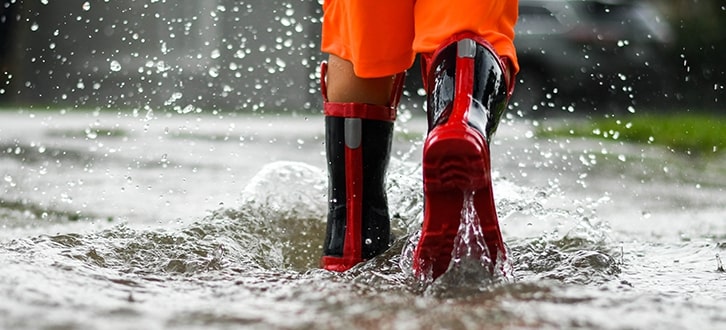Prepare for unexpected disasters with emergency readiness tips
Author: CenterWell Pharmacy
Date Posted: Jan. 30, 2019

If there is a disaster in your home or in your area, it may not always be possible to take your medications with you. Please contact us to tell us where to deliver your medication. When you have returned to your residence, please call to let us know. In an emergency, call 911.
Keep emergency telephone numbers handy in case you need them:
- Doctor’s name:
- Doctor’s #:
- Poison control:
- Ambulance:
- Gas co:
- Police Dept:
- Electric co:
- Nearest ER:
- Water Dept:
- Fire Dept:
- Phone co:
If you or someone in your care is on continual therapy, ensuring that care is not interrupted is very important. Follow these instructions for specific events.
Fire
• If someone is bedridden: tie a knot in the head and foot of their sheet. Using the sheet, pull the person to safety. If 2 people are available, make a chair from the rescuers’ arms and carry the patient to safety.
• If safe, alert the Fire Department. Otherwise, evacuate the area.
• Turn off oxygen (if applicable), and try to contain the fire by closing off any access, such as doors.
• Attempt to extinguish the fire only if it is in a small, localized area. Otherwise, evacuate the building and notify the Fire Department when you are safe.
Natural disasters (earthquake, hurricane, tornado)
• In disaster-prone areas, store food and extra bottled water. Have a transistor radio, flashlights and extra batteries on hand. Report any special needs for a backup generator to electric or gas companies.
• Check for injuries.
• Check for any gas or water leaks and turn off the appropriate valves.
• Stay away from windows or broken glass. Wear shoes at all times.
• Evacuate the area if necessary. Go to the nearest shelter and notify the organizers of any special needs.
Power outage
• Notify your gas and/or electric company if there is a loss of power. Report any special needs for a backup generator.
• Have a transistor radio, flashlights, batteries and/or candles available. (If using oxygen, turn it off before lighting candles.)
• If you use an IV pump, keep 2 C batteries available in case of a power outage.
Flood
• If you use an IV pump, unplug the pump unless water has come in contact with the IV pole.
• Evacuate the area.
• Contact local law enforcement, civil defense and/or emergency preparedness officials.
• In flood-prone areas, store extra food and bottled water. Have a transistor radio, flashlights and batteries available. Shut off valves for gas and water. Report any special needs for a backup generator to the electric or gas company.